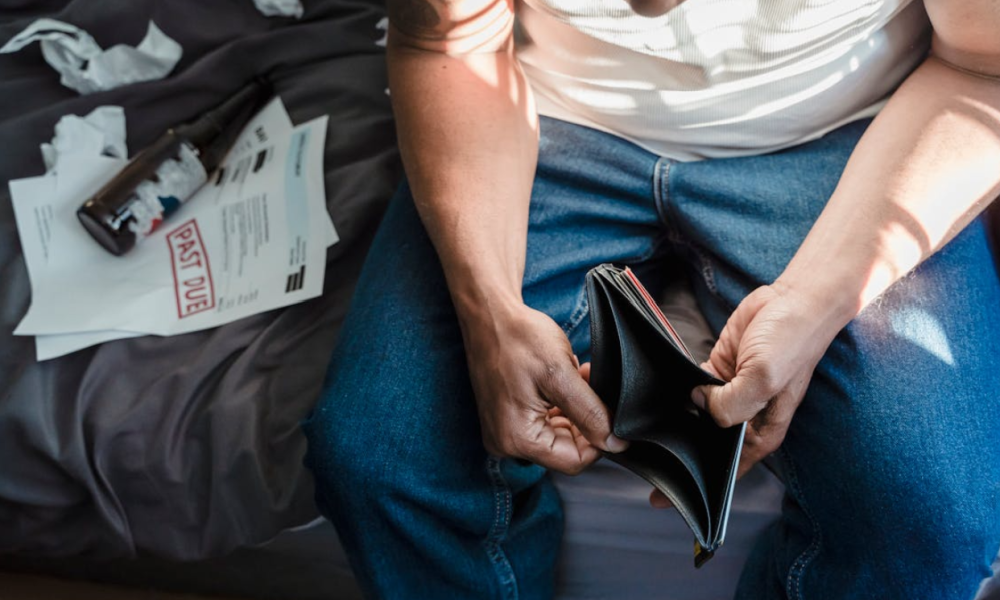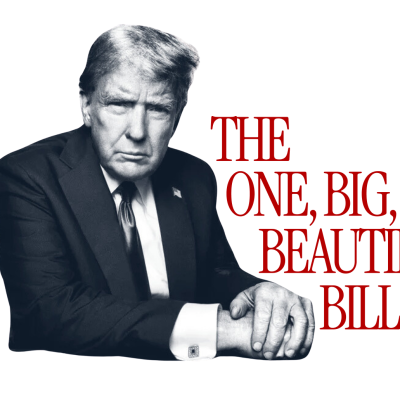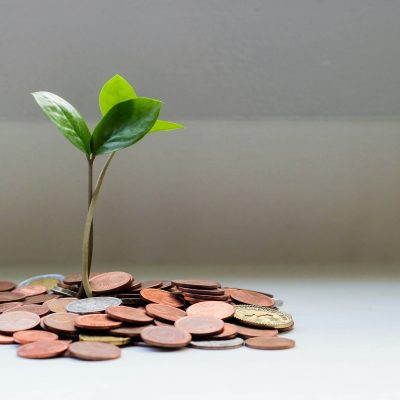The silent argument: are we in a depression?
Today, common household bills are increasing, and grocery lists are dwindling as food price tags are replaced with higher numbers than before. Despite everyday citizens voicing their financial shortcomings, experts insist that we are not in an economic depression. According to Columbia Business School, ”Numerous TikTok creators have theorized that the United States is experiencing a ‘silent depression’ […] Economists, however, are not convinced; a depression requires a prolonged period of recession, or multiple quarters of economic contraction.”
According to the Google Home page, “Silent depression refers to a sense of economic hardship and financial strain experienced by some Americans, particularly those with lower incomes,[…] many individuals struggling with high costs of living, stagnant wages, and a sense of financial precarity.”
While many believe that there is no silent depression, those who are usually a part of the upper-class system do not share the perspective of the lower and middle classes.
In an interview with Sophie Shor, a political science graduate at the University of Massachusetts, Amherst, she gave that perspective on those unrepresented classes.
“I definitely notice that I think a lot more about what I’m buying, and if I’m buying anything at all, and know that it’s gonna make a big impact on my own finances,” Shor said.
The economy has put pressure on many in ways that make them choose wisely about what they buy. The average person in the U.S., especially in Boston, has to play a mental math game to accurately determine their spending when they walk out of the house.
The current economy has affected people’s morality. People recently have been put in situations where they need to decide to either side with their morals or afford the basic necessities.
“I’m really careful about where I’m buying things from anymore, but I find I can’t afford to boycott Amazon, because I literally can’t afford to not spend a cheap amount of money to get something from them,” Shor added. “I’m finding that I just can’t afford to have ethics anymore.”
Our economy has become bad enouogh that we the people can’t stand on our morals or grounds without having to face a negative impact.
According to Yahoo finance, “In the states where a minimum wage job will get you closest to paying your bills, you’ll still come up about $14,000 short each year.”
Minimum wage isn’t increasing with the cost of living to help people stay a float and afford life. And even if it did, the job market is in a state where the people who have jobs are fighting to keep them and the people who need them have no opportunities to have them.
Shor has noticed it as well. She said, “There’s no jobs, I’m coming up on applying for Professor positions or not. So I’m like, Do I even want to do this anymore? […] Won’t be compensated well for it. So I just go into the private sector, the job market, this is a very particular city that actually has jobs that I could apply for, because it’s academic in all the schools.”
According to kff.org, “Just under half of U.S. adults say it is difficult to afford health care costs, and one in four say they or a family member in their household had problems paying for health care in the past 12 months.”
Another thing that’s increasingly difficult to afford now is proper healthcare. On average, people struggle with affording good healthcare, especially in today’s economy.
“My current job has healthcare and so what I’m gonna stay in it forever? Even though I’m being paid almost nothing,” said Shor. “I’m being paid $2,000 this whole summer to teach a class online, which is nothing, but it comes with the health insurance, which then is priceless.”
The common economic struggles seem to be perpetually getting worse every year without any end in the near future. While talking with Shor, she said that she believes the only way that our economy can get better is if our lawmakers and policymakers actually cared about the common man.
“Everybody is built into this capitalist society where it’s all about making profit and taking care of yourselves rather than putting others first, but the moment we put others first, then there will be profit and value out of it. Look at some politicians who actually care, like Zohan Mandani, who just ran in New York, and his whole platform is about rent affordability, making sure that people can actually afford where they’re living, being able to pay for the subway and live a healthy, happy life.” said Shor.
Many people work multiple jobs to afford basic necessities like rent and food, while others feel the need to prioritize financial stability over pursuing their passions. The economy is experiencing a decline, with the cost of living growing faster than wage growth for most. This has led to discussions about America experiencing a Silent Depression, with some arguing that significant changes are needed to address these challenges. Do you think we’re living in a silent depression?








